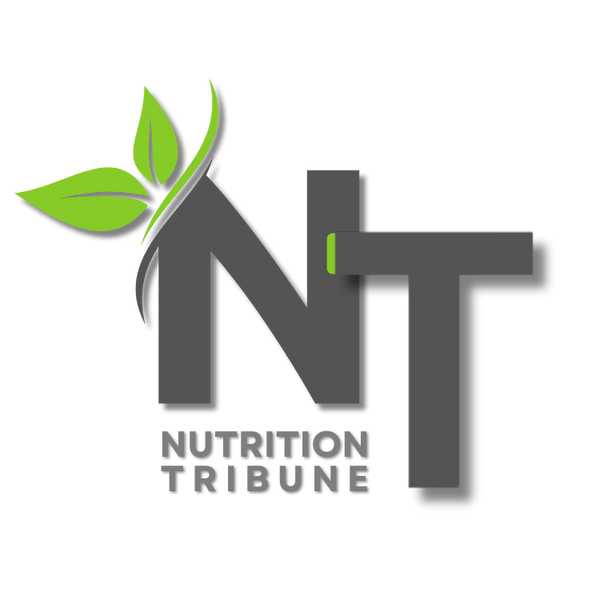
7 Common Myths about Good Nutrition
Share
The Internet is a beautiful place full of an incredible amount of information about health and nutrition. Unfortunately, it also has a vast amount of articles and websites dedicated to misinformation, myths and fad diets. Eating well shouldn't be as big of a mystery as it is made out to be. It also shouldn't mean having to turn to any extreme measures. Let's look at some of the most common myths surrounding proper nutrition.
Myth 1: "Anything eaten at night is immediately stored as fat."
So many people are filled with the fear that all food should be eaten before a particular time each day. This couldn't be further from the truth. Our bodies don't have a magical timekeeper that penalises us for the time food is eaten. What matters the most in a 24-hour period is the amount of calories you have taken in, the quality of the food you have eaten and your level of activity. Not when you eat (1). So yes, regularly eating a dessert at 9 pm after your dinner may contribute to weight gain but only because you have just eaten a meal and the dessert adds to unnecessary 'empty' calories.
Myth 2: "Your body occasionally needs to detox from toxins."
Nope. The great news here is that unless you are suffering from certain diseases, your body does a great job of detoxing without any help from the outside. Firstly, your liver ensures that any drugs you may have taken (caffeine, paracetamol, nicotine or alcohol, etc.) is properly 'detoxed' so that it doesn't harm your system. Next, up your blood is naturally purified by your kidneys before it is sent back to circulate your body. These processes are happening every second you are living and breathing and certainly require no help from juices, smoothies or powders bought at the health store (2).
Myth 3: "Eggs should not be eaten every day as they cause high cholesterol."
If you go back a couple of decades, the nutrition advice surrounding heart disease and cholesterol was somewhat different. Unfortunately one of the more archaic pieces of advice still lingers: Limit your egg intake as they raise your cholesterol. Nope. Not true. While eggs do indeed contain significant amounts of cholesterol, they are the last food items you should be limiting. A review of newer studies has shown that eggs exhibited no effect on an individual's risk of heart disease or stroke (3). Eggs are one of the most nutritionally dense food options around. They are packed with protein and essential nutrients like choline as well as antioxidants like Lutein and Zeaxanthin. So when it comes to your health, ditch the sugary cereal and rather go for a nutritious egg-filled breakfast (4).
Myth 4: "Low-fat products are healthier than the full-fat variety."
The truth is that most often food labelled as low fat is anything but healthy. Let's take a look at low-fat or fat-free fruit yoghurt for example: When you have a look at the nutrition label, it is clear that the fat content of the product is extremely low. Next up the carbohydrate content, most of the time the carbohydrate content is unusually high due to added sugars, thickeners and solidifiers. Here's the thing, when you take naturally occurring fat out of a product it tends to 'misbehave.' A product like yoghurt needs the presence of naturally occurring fat to ensure the familiar texture of yoghurt. Without the fat, the yoghurt falls apart and separates out. To combat this starchy thickeners and fillers are added. Lastly, the taste is obviously affected, and of course, no one will buy a product that doesn't taste good, so sugar is added. The result is a processed, artificial so-called 'health food'. Trust us, stick to the naturally occurring full-fat yoghurt varieties (5).
Myth 5: "Brown sugar is healthier than white sugar."
The sad truth about this one is that there is truly no difference between ordinary white sugar and brown sugar, except for a touch of caramel food colouring added to the brown sugar to market it as a 'healthier sugar'. The thought that brown sugar is healthier comes from the more unrefined type of sugar called molasses. Molasses does indeed contain more nutrients that ordinary white or brown sugar however on a caloric level there is still no difference. Sugar is sugar and should be limited, full stop.
Myth 6: "If a food is healthy you can eat as much as you want of it."
We wish this one were true! Delicious foods like nuts, avocado, olive oil and peanut butter may be on the healthy list, but they still do contain a hefty dose of calories, especially as they are all fat. Even though a food is considered a health food it doesn't mean you no longer have to watch your portion sizes. If you eat a healthy diet full of good healthy fats and are struggling to lose weight perhaps it's time to consider exactly how much of the good stuff you are taking in.
Myth 7: "Eating extra protein helps you build muscle."
Ever seen people eating tuna straight from the tin, chugging back protein shakes or eating dry chicken breasts? Many people mistakenly believe that any protein they ingest automatically turns into muscle in their bodies. However building muscle is a bit more complicated. First of all, in order to build muscle, you do indeed need enough protein and calories but not nearly as much as you would think. Secondly, weight training or strength training is necessary to build muscle (6). Ingesting any additional protein past your needs simply gets excreted or stored as fat. Bottom-line? Eating pure protein will not magically grow your muscles. Many other factors are important.
